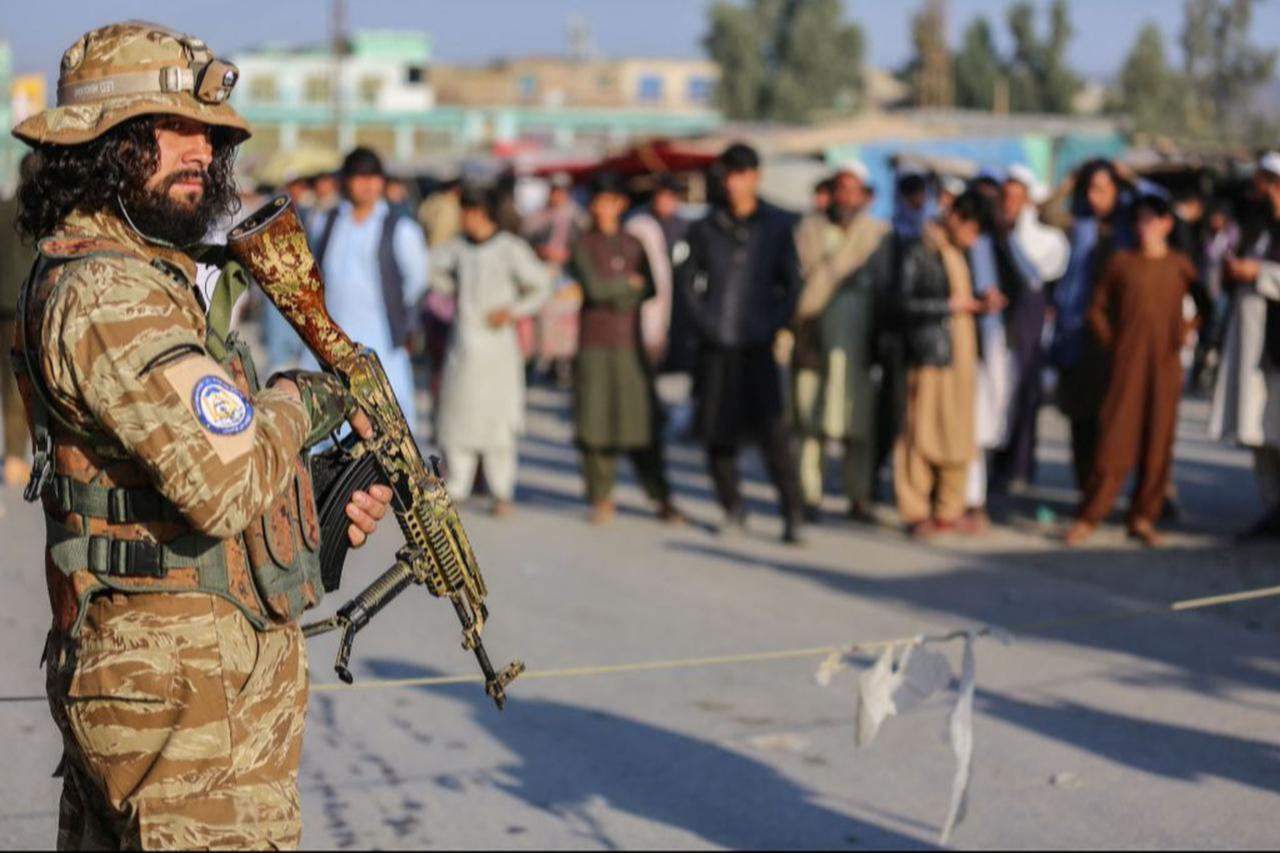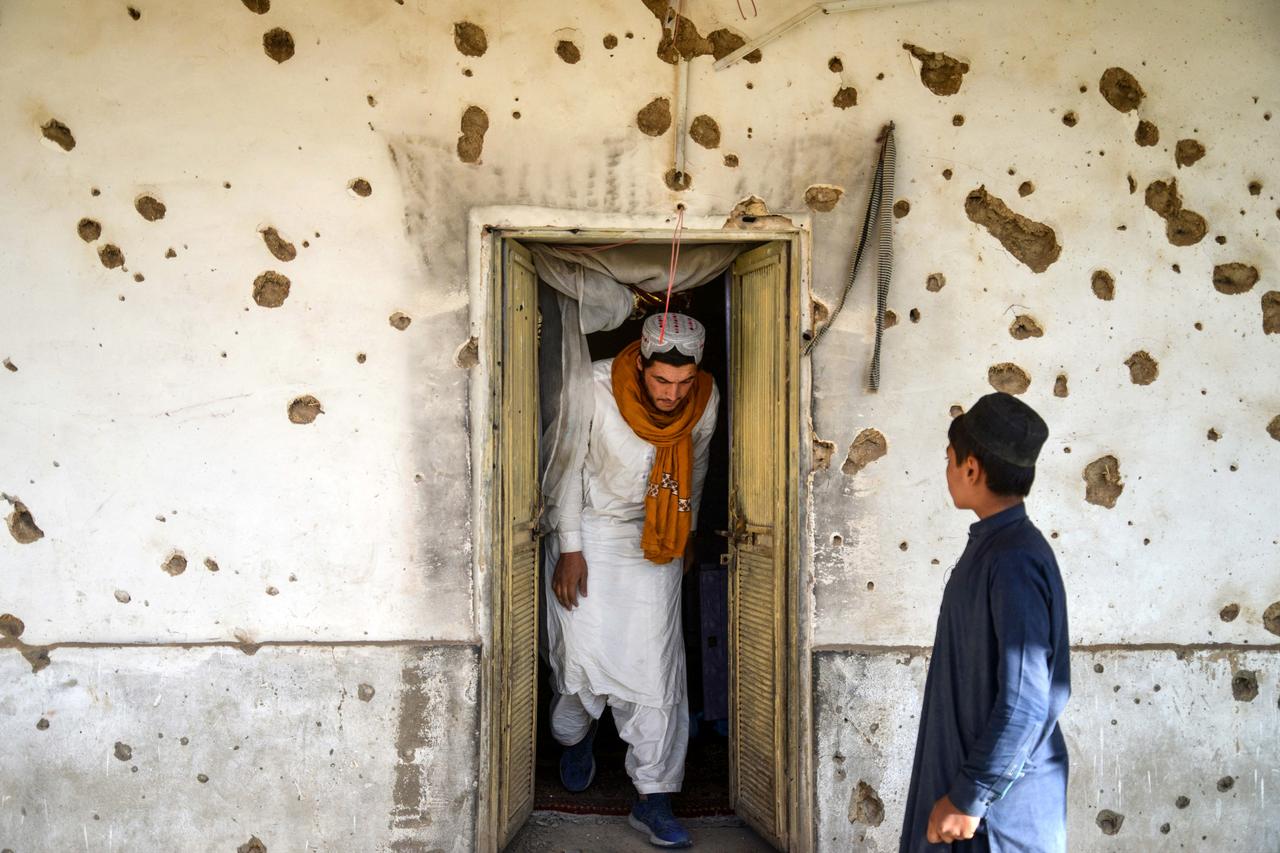
Afghanistan’s Taliban government said Saturday that a ceasefire with Pakistan will remain in place, despite the failure of their latest round of peace talks, blaming Islamabad’s “irresponsible and uncooperative” approach for the deadlock.
The two sides met on Thursday in Türkiye to finalize a truce agreed on Oct. 19 in Qatar, following deadly border clashes that left more than 70 people dead and hundreds wounded. While both governments remained tight-lipped on the specifics, the talks reportedly focused on long-standing security concerns.
“During the discussions, the Pakistani side attempted to shift all responsibility for its security to the Afghan government, while showing no willingness to take responsibility for either Afghanistan's security or its own,” Taliban spokesman Zabihullah Mujahid wrote on social media.
“The irresponsible and uncooperative attitude of the Pakistani delegation has not yielded any results,” he added.
At a news conference later, Mujahid emphasized that the ceasefire would remain in effect. “There is no issue with the ceasefire previously agreed upon with Pakistan; it will hold,” he said.
Islamabad and the mediators have not yet publicly commented on the outcome of the talks.

Relations between the two neighbors, who share a 2,600-kilometer (1,600-mile) frontier, have deteriorated sharply in recent years. Pakistan accuses Afghanistan of harboring militant groups, particularly the Tehreek-e-Taliban Pakistan (TTP), which it blames for cross-border attacks. The Taliban government has repeatedly denied the allegations.
Islamabad seeks formal guarantees from Kabul that it will stop supporting armed groups, while Afghanistan demands respect for its territorial sovereignty and accuses Pakistan of backing insurgent factions operating against it.
The situation escalated again on Friday when both sides traded blame over renewed fighting in Spin Boldak, on the Afghan side of the border. A district hospital official told AFP that five people—four women and one man—were killed in the clashes.
The Taliban said it did not retaliate “out of respect for the negotiating team and to prevent the loss of civilian lives.”
Pakistan’s Information Minister Attaullah Tarar earlier signaled that the Türkiye-hosted talks were failing, stating that Afghanistan had not fulfilled its pledges to curb terrorism. “Pakistan shall continue to exercise all options necessary to safeguard the security of its people and its sovereignty,” he wrote.
Islamabad has also accused Kabul of aligning with India, its historic rival, during a period of closer ties between Afghanistan and New Delhi.
Meanwhile, Turkish President Recep Tayyip Erdogan on Saturday emphasized the importance of maintaining the ceasefire during a meeting with Pakistani Prime Minister Shehbaz Sharif in Baku.
According to a statement from Türkiye’s Communications Directorate, Erdogan said Ankara is “closely following the terrorist attacks in Pakistan and the tensions between Pakistan and Afghanistan” and expressed hope that the Türkiye-hosted talks would lead to lasting stability.
Erdogan affirmed that Türkiye would continue to support the peace process and deepen cooperation with Pakistan in areas such as trade, energy, and the defense industry.
The two leaders were in Azerbaijan to attend Victory Day celebrations in Baku. Earlier in the day, Erdogan and Sharif took part in a military parade marking the fifth anniversary of Azerbaijan’s liberation of Shusha during the 2020 Karabakh war.
Erdogan also reiterated the importance of preserving the ceasefire in Gaza and urged continued engagement through the United Nations framework.